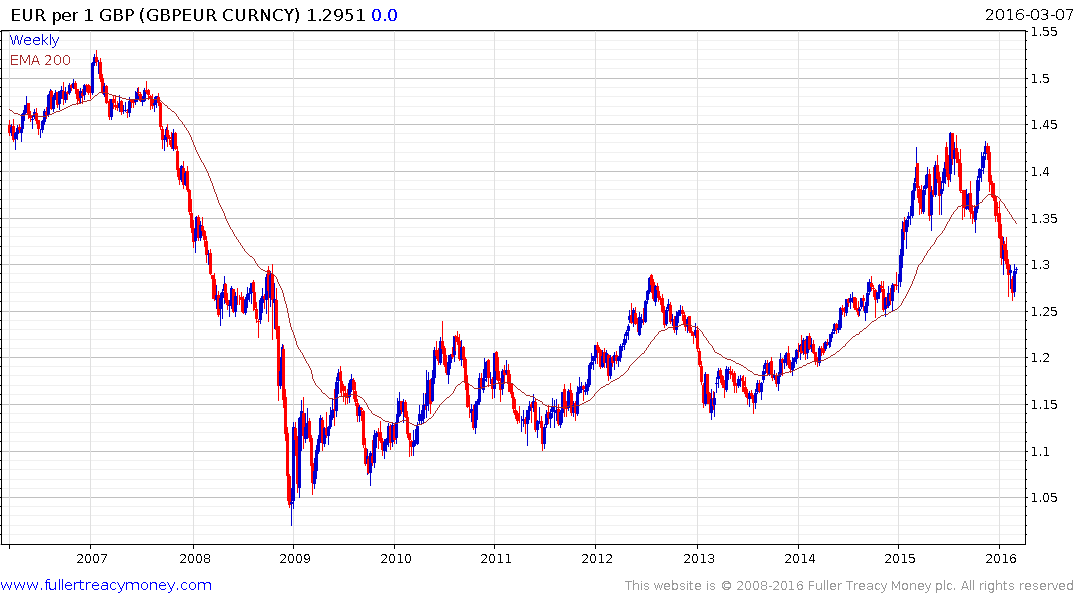Carney's `Brexit' Stance Under Fire as BOE Accused of Bias
This article from Bloomberg may be of interest to subscribers. Here is a section:
Tensions are running high in the buildup to the referendum. Goldman Sachs Group Inc. and BlackRock Inc. are among those who’ve warned the June 23 vote puts trade and investment at risk and economists saying the full implications of an exit are almost impossible to quantify.
Testy Exchange
The opening of the hearing on the economic and financial costs and benefits of EU membership was dominated by a testy exchange between Carney and pro-“Brexit” lawmaker Jacob Rees-Mogg of the ruling Conservative Party.“You are coming out with the standard pro-European Union group” lines, Rees-Mogg told the governor. “It is beneath the dignity of the BOE to be making speculative pro-EU statements.”
“I’m not going to let that stand,” Carney said. He defended the BOE’s independent stance by saying economic issues are not the only consideration and the central bank will not make any recommendation on the topic. Later, when Rees-Mogg said Carney wasn’t upholding the BOE’s “Olympian detachment” from politics, Carney accused him of “selective memory” in relation to his testimony.
The question of the UK’s membership of the EU remains an emotive one so we can anticipate continued hyperbole as the date of the vote approaches not least since both sides feel so passionately about their positions.
In my view the question is not whether the UK will be better or worse off outside the EU but rather what its relationship with the bloc is likely to be if the decision is made to leave. All I’ve seen are some pretty skimpy ideas of what kinds of policies will be enacted should the country exit the EU.
A recasting of EU treaties will ensue and even in a benign scenario, where the UK remains within in the EEA, there will be a scramble for competitive advantage. It is more important for the UK to come out on top of that exchange than for the Eurozone so the Pound will likely be used as a policy tool.

The Pound has held a progression of higher reaction lows against the Euro since 2008 when it tested parity. It has pulled back sharply over the last 9 months to test the €1.25 area and has bounced over the last couple of weeks to begin to unwind the oversold condition. €1.35 represents the lower side of the overhead top formation and the BoE is unlikely to tolerate the Pound strengthening very much beyond that level. That suggests the best case scenario is for ranging while a sustained move below €1.25 would signal a return to medium-term Euro dominance.


